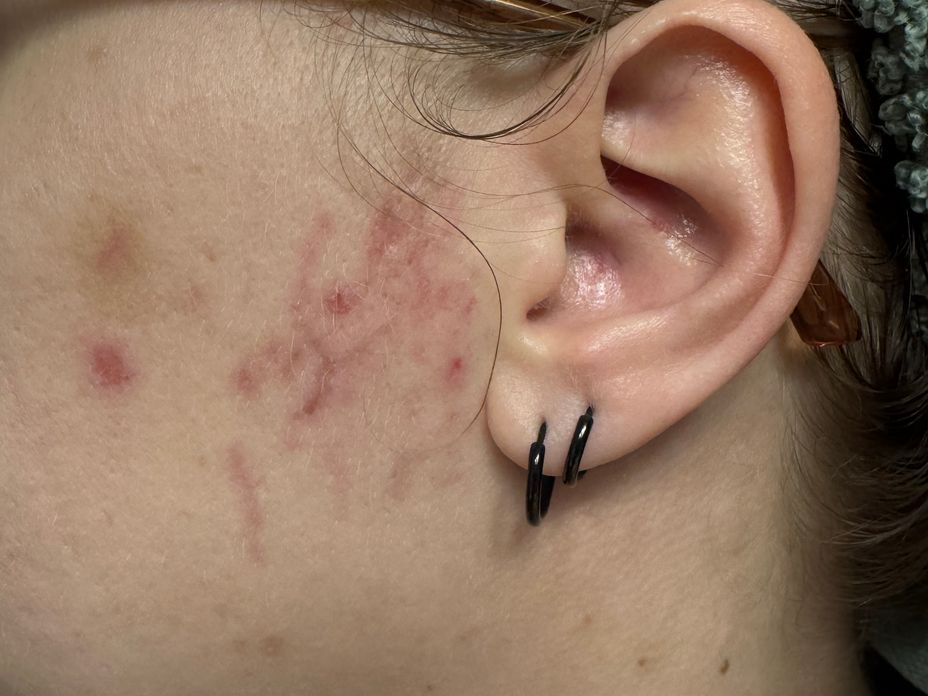Hey. I’ll try to keep this short as it’s way too much if I go into details.
2 years ago began the start of the newest problems.
August 2024, they increased and got worst at a way faster rate.
Diagnosis:
Vitiligo
Recurrent staph/MRSA/cellulitis
Folliculitis/Eczema/Prurigo Nodularis
Anemia (most of my life)
Thickened endometrium
Hormone imbalances
Migraines
Spinal injuries
Mental health (ptsd/severe anxiety/depression)
Chronic swollen throat/tonsils/lymph nodes
Sinusitis
Chronic dry cough
Low BP
Recent deviated septum
Fatigue, malaise
Body aches/weakness
Carpal tunnel
Skin intolerance to hot/cold
Recurrent UTI’s
Fibromyalgia
Recurrent ear infections / ear staph
Eustachian tube dysfunction
Hearing loss
Uterine fibroids & cysts
Memory loss
ADHD
Severe Insomnia with nightmares
IBS/GERD
TMJ/Bruxism
Not yet diagnosed:
Raynauds (2 almost constantly blue toe nails, recently started in second, 1st has been present last two years off and on)
Chronic chills
Brittle nails
Hair loss (possibly medication related)
Recent testing:
A few genetic tests
Allergy testing
Several autoimmune panels
Current additional issues:
Oral thrush (due to long term antibiotic usage - close to four months now)
Ear pressure/fullness along with dark red/purple spot inside filled with liquid ? Also spots of white appearing pus that pop to drain
— can’t handle loud noise or cold air currently. Severe ear itching.
Eye itch and redness (not pink eye)
Muscle weakness and twitching - minimal long-term control in arm muscles
Pending:
Additional testing
Meeting hematology
CT of neck/throat/nose
Hysterectomy (paused until healthy)
Immediate Family history of:
Lupus (blood work shows low middle numbers not high enough to diagnose)
Celiac (ruled out by endo/colonoscopy)
Psoriasis
RA (ruled out by blood work)
Heart issues
All I can say is yes, I’m in pain. And yes, I’m exhausted. And frustrated. I’m not a crier and all I do is start crying all the time. I have 4 kids and I can’t be the best for them. I am failing everywhere in life and I just need to get this fixed or someone to finally step in and help because I can’t keep declining like this.
I am a veteran. I have little say in my health care. I can’t get a second opinion. Getting a rheumatologist seems to be impossible despite numerous doctors telling me I should see rheumatology. I’m feeling so defeated. If I could at least narrow things down it would help so much, so I could share my research with my doctors. I have several things on my list but I need to get a really good list. Please help if you can think of what may be causing all of this.
Thank you.
*** I would share many more pictures if I could 💕
#chronichealth #Pain #hurting #mother #Veteran #Desperate #pleaselisten #sick #someonegetmedrhouse #illeventakethegoofysidekickguy #ijustwanttofeelbetter #helpme #Genetics #hematology #labs #Skin #Dermatology #IBS #GERD #autoimmune #Disorder #PTSD #Fibro #Rheumatology

